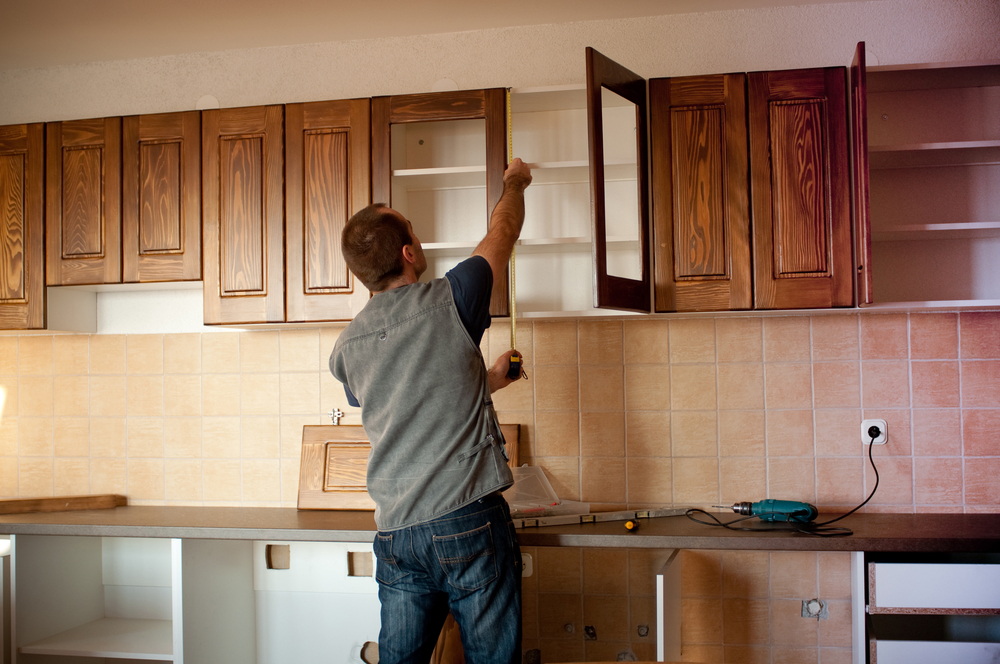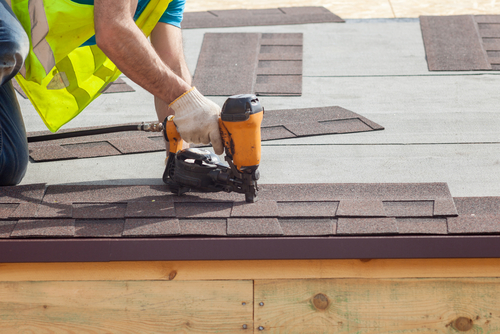7 Tips To Avoid Going Over Budget On Your Home Renovation

As you prepare to kick off your home renovation projects, you should do all you can now to ensure you can stick to your budget.
While things may appear to be going smoothly at the start of your remodeling endeavors, things can quickly take a turn for the worse.
Even with a budget in place, you may find that your home renovations have begun to spin out of control.
Sticking to Your Renovation Budget
Creating a budget for your home renovation is only half the battle. To ensure you don’t spend more money than you can afford to, keep the following seven tips in mind:
1. Plan for the Unexpected
When renovating a home, you never know what will happen. When handling construction around the home, there’s always the possibility of something going wrong.
Perhaps your contractor hits some pipes while tearing down a wall or you uncover a mold problem you had no idea was there.
These are the kinds of situations that require immediate attention, regardless of whether it was part of the plan or not.
Don’t wait for these things to happen to take care of them; plan in advance.
Prepare for the unexpected by including an emergency fund in your budget. While you hope things will go according to plan, have some financial cushion to set aside just in case.
You should include a 10-20% contingency as part of your budget for this very purpose. As you get through the renovation, keep an eye on this emergency fund.
If you need to tap into it, make changes to the rest of your budget as needed. If this means cutting back somewhere else in your budget, make plans to do so.
2. Communicate Clearly with Your Contractor
 You’ll never be able to ensure you’re sticking to your budget if you and your contractor aren’t on the same page. Make every effort to have regular communication with your contractor to ensure that everything is happening according to your wishes.
You’ll never be able to ensure you’re sticking to your budget if you and your contractor aren’t on the same page. Make every effort to have regular communication with your contractor to ensure that everything is happening according to your wishes.
With miscommunication and unknowns come more expenses and excessive spending.
When you prioritize good communication practices, you’ll be able to better stick to your budget. Building a strong relationship with your contractor will encourage them to make every effort to keep your budget in mind as they work to renovate your home.
This relationship starts at the very beginning of the renovation process, as you should look for a contractor that you really trust and feel comfortable with.
As you are in the process of hiring your contractor, be sure that the contract clearly defines what will be included with contractor’s work and what you’ll need to handle on your own.
Additionally, before you agree to hire a contractor, make sure the contract allows that payments be made only after a project is completed.
In most cases, the payments will be split up into installments to be paid throughout the duration of the renovation. This stipulation will ensure that you always get what you pay for.
3. Be Open to Compromising
While you may have a certain image of your dream home in mind, when reality hits, these dreams aren’t always feasible.
As you launch into remodeling your home on a budget, compromising will be your best friend. During the renovation process, you’ll be presented with many decisions.
Being able to choose the less expensive materials and cheaper alternatives is an essential part of staying on budget.
Just as you should be open to compromising, make a habit of always shopping around. Never take the first price you find; do your research to ensure you are making the most cost-effective choice.
4. Don’t Hesitate to DIY
Choosing to DIY your remodel can save you a significant amount of money. With simple remodeling projects like painting the walls, pulling up the carpet, or laying down tile, you should be able to tackle these while saving some serious cash.
However, for more extensive projects, it’s important to know when to call in an expert. This goes for any plumbing, electrical, gas, or complex construction projects.
5. Don’t Go Room by Room
Planning to replace the floor in your bedroom? If you plan to eventually replace the floors throughout the whole home, go ahead and commit to doing all the rooms at the same time.
Though it may seem more expensive outright, this will save you money over time as it will be less expensive for your floor-installation company to come in and tackle all of your floors at once rather than do everything bit by bit.
6. Reface Instead of Replace
 Homeowners that are tired of looking at their old kitchens and bathrooms often consider replacing everything. However, this is the most expensive way to make these rooms look better. If you’re on a budget, consider simply giving them a face lift.
Homeowners that are tired of looking at their old kitchens and bathrooms often consider replacing everything. However, this is the most expensive way to make these rooms look better. If you’re on a budget, consider simply giving them a face lift.
With your kitchen, consider refacing your cabinets, backsplash, and any similar areas in the room. By doing these basic remodeling jobs with Unique Design Kitchen Renovations, you’ll be able to have your kitchen back to working order in less than a week. This is a far cry from the month-long wait you’d have to otherwise endure, ultimately cutting down on labor costs significantly.
7. Include the Price of Permits
While it would be easier for you if your contractor obtained the necessary permits and included them in the final fee, it is likely that you’ll have to get your own permits.
If you do go ahead with your remodeling projects without a permit, there will be consequences to pay. If your renovation projects aren’t found to be up to code, the city may force you tear everything down.
Considering the consequences of remodeling without a permit, the most cost-effective solution for you is to go ahead and purchase the necessary permits before you begin your project. By including these fees as part of your budget, you won’t be caught off guard later on down the road.
Don’t let your remodeling projects take control of your budget. Get ahead of any financial issues by using these seven tips during your upcoming renovation.
Category: Home Renovation





I got a very useful tip before that says, see first the things you can DIY and those that you cannot. DIYing some things can really save you a lot of money!
Glad to be of help and thanks for your comments!
Thanks for the great tip that creating a good relationship with a contractor would ensure that one will not go over budget during a home renovation project. Reading this made me hopeful that my sister and I can look for a professional painter to change our house’s exterior wall from dark grey to light yellow. Aside from that tip, do you have any more advice on how homeowners should choose their contractors?
Asking the contractors past customers will be very enlightening!